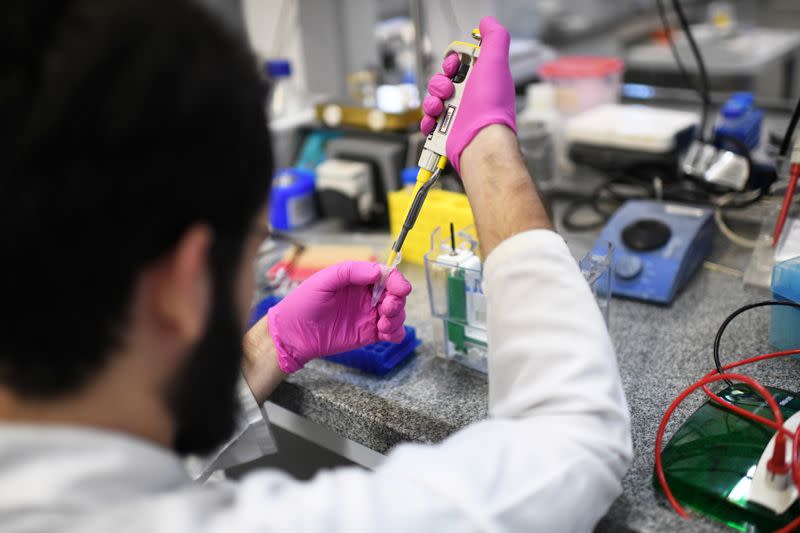By Ricardo Brito
BRASILIA (Reuters) – Brazilian researchers have identified the worrying new coronavirus variant discovered in South Africa in a woman who contracted COVID-19 for the second time, and said it was the first reported case in the world.
There have been other cases of reinfection in Brazil and the South African variant has already been detected, but reinfection with this virus mutation is believed to be the first, the researchers said.
The case involved a 45-year-old woman from Bahia, according to researchers at the D’Or Institute for Research and Education (IDOR), after carrying out the genetic sequencing of her viral infection.
“This mutation was recently identified in Rio de Janeiro, but it is the first time in the world that it is associated with a SARS-CoV-2 reinfection,” said Bruno Solano, who led the study, in a note.
“We observed, in the genetic sequence of the virus present in the second case, the E484K mutation, which is a mutation originally identified in South Africa and which has caused a lot of concern in the medical field, as it can hinder the action of antibodies against the virus”, he said Solano.
The results of the study are to be published in the medical journal The Lancet. A case report (https://bit.ly/39iJCnS) was published on Wednesday before the peer review on Preprints.org.
The researchers said the woman, who lived in the city of Salvador, was infected twice: first on May 20 and again on October 26. His symptoms were stronger the second time, the researchers reported.
Brazil is suffering the second most deadly coronavirus outbreak in the world, after the United States, with more than 200,000 deaths and 8 million confirmed cases. Right-wing President Jair Bolsonaro, who downplayed the severity of the highly contagious disease, is facing criticism for taking too long to respond to the health crisis.
The evolution of the coronavirus has raised concerns that certain mutations could allow the virus to escape immunity from previous infections or vaccines.
So far, there is no strong evidence to suggest that any of the many variants circulating in the world are different enough that the immune system does not recognize one after it has found another.
Re-infection is believed to occur because people have insufficient immune protection left over from the first infection.
Preliminary results from a laboratory study released on Thursday and awaiting peer review showed that the COVID-19 vaccine from Pfizer Inc and BioNTech SE is likely to remain effective against the new highly transmissible variants discovered in the UK and South Africa.
